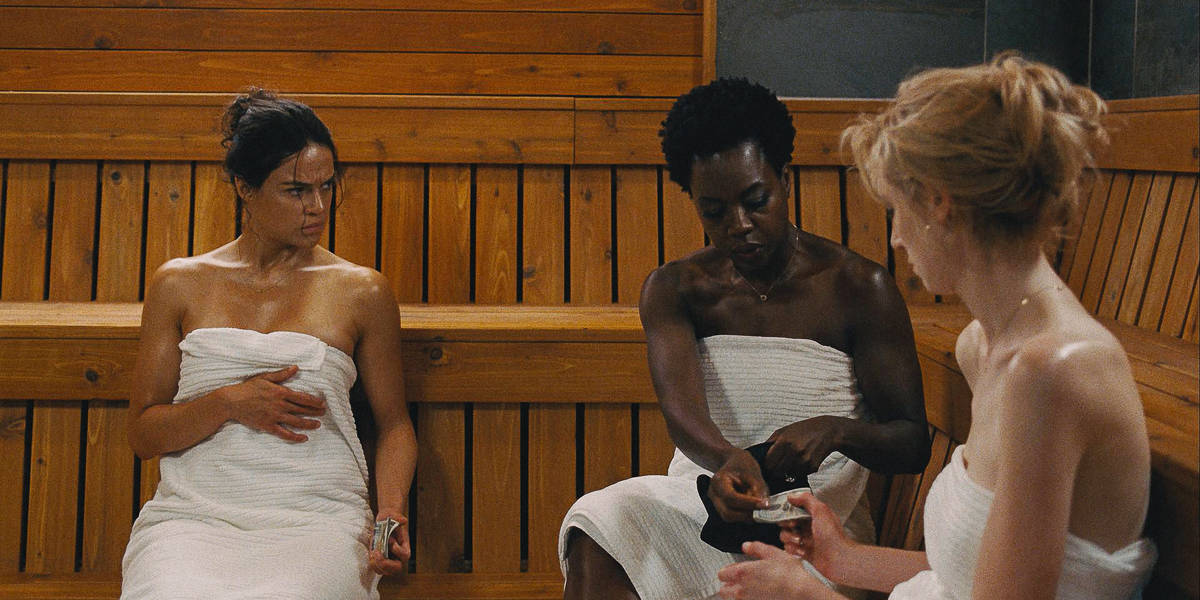I am a woman who likes action movies. What I don’t like is how this genre usually reduces female characters to wives and mothers. How do we remedy this one-dimensional portrayal of femininity? By killing off the husbands! And I mean that literally. Killing off the men who would normally be the stars of the movie in its opening sequence is the brilliant conceit that makes Widows better than your average action movie.
Directed by Steve McQueen, Widows tells the story of three women who resolve to pull off a heist after their gangster husbands die on the job. Starring Viola Davis, Michelle Rodriguez and Elizabeth Debicki, the three female protagonists are at different stages of life and come from very different backgrounds. The one thing that unites them is that their husbands treated them like shit. Debicki’s character survived domestic violence, Rodriguez’ partner stole from her business to fund his illegal activities, and Davis’ husband, well, let’s just say he’s the worst of the lot.
Widows isn’t a particularly complicated or convoluted movie. It features many of the tropes you’ll recognize from crime films like The Town, The Departed, and anything made by Scorsese. You have shootouts, gallows humour, and corrupt politicians trying to make a buck off good people’s backs; however, it’s refreshing to see the women get the chance to play in this world. They get to do more than sit at home making dinner and wearing sexy dresses.
When I screened Widows on the weekend, the audience audibly whooped in multiple scenes. We were so delighted to see a group of women—and a diverse group, too boot—at the centre of the action. Everything felt more exciting. The dialogue felt punchier, the cinematography really popped, and even played-out chase scenes were enthralling. This could be because of Steve McQueen’s talents as a director, and surely, at least some of the credit does go to him. But the real magic of Widows is that you actually want these women to win.
Making a violent heist movie starring downtrodden women is ingenious; it allows a feminist audience to root for the criminals whole-heartedly. In many classic crime movies, we’re expected to cheer for entitled white guys who could make money honestly; instead, they pick up guns and decide to take things from other people. Because the gang in Widows had their economic livelihood compromised by the men in their lives, it’s easy to enjoy the idea of them getting rich.
We live in a society where it’s still harder for women—especially women of colour—to achieve fair pay or financial security. Consequently, it’s not infuriating when these widows deice to pillage a rich guy’s cash; instead, their mission feels courageous and—dare I say it?—sympathetic.
Widows is revolutionary because it’s an action movie where women (emphasis on the plural) get to be part of the action. Let’s hope it starts a trend…



 Follow Us On Instagram
Follow Us On Instagram
